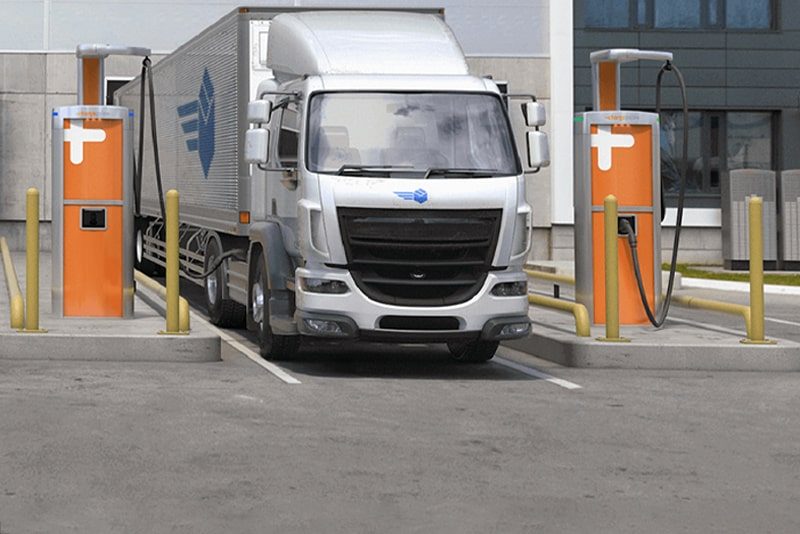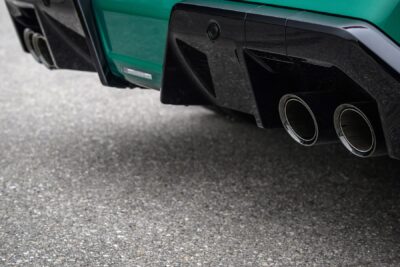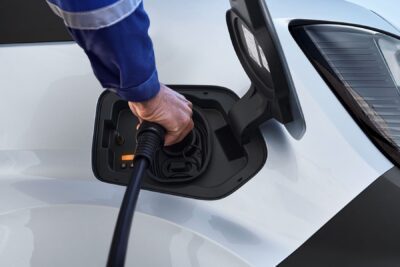
Provisional agreement on CO2 standards for trucks and buses
If both institutions formally adopt the provisional agreement, CO2 fleet emissions from trucks over 7.5 tonnes and coaches must be reduced by 45 per cent by 2030, 65 per cent by 2035, and 90 per cent by 2040. These targets are in line with the Commission’s proposal.
In the case of city buses, the provisional agreement now reached by the two government bodies provides for a 100 per cent reduction in CO2 fleet emissions by 2035. In the Commission’s original draft, the target was 2030. An interim target of 90 per cent will now apply to city buses for 2030.
The EU Commission will review the effectiveness and impact of the targets in 2027. It will also assess the role of a methodology for registering heavy commercial vehicles that run exclusively on CO2-neutral fuels. In other words, there is a backdoor for e-fuels, as their use is still under review. They are not entirely off the table, but they are not yet a done deal either.
EU Council gets its way on city buses
Only in November did the EU Parliament adopt its position on the new CO2 standards for heavy goods vehicles. It largely agreed with the Commission’s position and used it as the basis for negotiations with the EU Council – i.e. representatives of the member states. The fact that these negotiations between Parliament and the Council took less than two months suggests that there were few points of conflict.
The only change worth mentioning is the target for city buses. The Commission and Parliament agreed that after 2030, all new city buses must be zero-emission. The Parliament had voted to allow an exemption for city buses powered by biomethane until 2035, provided strict conditions were met. However, in negotiations with the EU Council, they agreed on 2035 as a target for implementing a 100 per cent reduction in CO2 emissions, while the target for 2030 will be 90 per cent. That was the position of the EU states for the negotiations announced in October – so they ultimately prevailed here.
In the case of trucks and coaches, however, the EU Council accepted the joint position of the Commission and Parliament – there is no change here, even in the interim targets for 2030 and 2035. However, that also means that a complete phase-out of combustion engines in trucks is off the table. The EU-level political consensus is to reduce CO2 emissions by 90 per cent compared to 2005.
However, a 90 per cent reduction cannot be achieved with more efficient combustion engines, but only with large-scale electrification. In some cases, where neither a battery-electric drive nor a fuel cell vehicle can be operated well and competitively, diesel lorries (and coaches) can still be registered after 2040.
Three categories are not covered by the regulation:
- small-volume manufacturers and vehicles used for mining, forestry and agriculture
- vehicles for use by the armed forces and fire services
- vehicles for use in civil protection, public order and medical care
Exception for professional vehicles
A separate regulation also applies to so-called professional vehicles, such as waste collection vehicles and concrete mixers: they will only be covered by the regulation from 2035, meaning that the 2030 interim target of -45 per cent would not apply here. However, they will have to fulfil the requirements from 2035 (-60 per cent), so the delay is short. Instead, the Commission will examine the possibility of extending the CO2 targets for smaller vehicles up to five tonnes.
The provisional agreement also contains another interesting point: Parliament and the Council have agreed on a definition of ‘e-trailers.’ It will bring legal clarity and “adapt the existing regulation to the technical developments in this new type of trailer.” It will consider the potential of e-trailers to contribute to CO2 reduction.
The provisional agreement will be submitted to the member states’ representatives within the Council (Coreper) and the Parliament’s environment committee for approval in the next step. If approved, both institutions must officially adopt the text after legal and linguistic revision before it can be published in the EU’s Official Journal and enter into force.




0 Comments